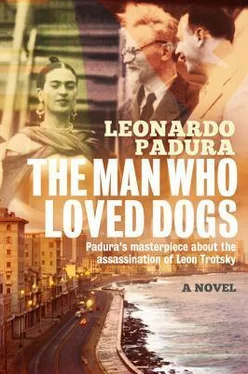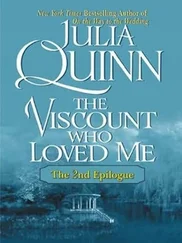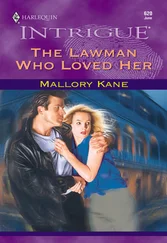“ Jo sóc un fantasma .”
Breathing in the frozen air, feeling the burning pain rising up through his arm, again that specter who had once been called Ramón Mercader del Río imagined how his life would have been if on that remote early morning, on the side of the Sierra de Guadarrama, he had said no. Surely, he thought, as he liked to do, he would have died in the war, like so many of his friends and comrades. But above all, he told himself — and that was why he liked to get caught up in that game — that other fate would not have been the worst, because in those days the true Ramón Mercader, young and full of faith, was not afraid of death: he had opened all the windows of his spirit to the collective mind, to the struggle for a world of justice and equality, and if he had died fighting for that better world, he would have earned himself an eternal spot in the paradise of pure heroes. At that moment Ramón thought how much he would have liked to have seen that other Ramón come to his side, the true one, the hero, the pure one, and to be able to tell the story of the man that he himself had been all those years in which he had lived the longest and most sordid of nightmares.
Thirty-one years ago, Iván confessed to me that for a long time he had dreamed of going to Italy. In the Italy of his yearning, Iván could not have gone without doing several things: visiting the Castel Sant’Angelo; going, as if on a pilgrimage, to Florence and contemplating the Tuscan landscapes that Leonardo had once seen; standing amazed before the city’s Duomo and its green marble; wandering around Pompeii like someone reading an eternal book about the eternity of life, passion, and death; eating a pizza and real spaghetti, preferably in Naples; and, to guarantee his return, throwing a coin in the Trevi Fountain. Until the arrival of the great moment, Iván had fed his dream by studying the works of Leonardo (although it was Caravaggio whom he was really crazy about), seeing Visconti’s and De Sica’s movies, reading Calvino’s and Sciascia’s Sicilian novels, and swallowing the spongy pizzas and bland pastas that became widespread on the island in the seventies and assuaged so much of our hunger for so many years. His was a desire so persistent, so well designed, that I have come to wonder whether in reality Iván had studied journalism with the hope of someday being able to travel (to Italy) in those times when almost no one traveled and no one did so unless it was an official mission.
The first time my friend spoke to me of the existence and later fading of that dream so Cuban and so insular, of escaping from the island, was on the terrace of his house, two or three months after we met. Around that time, I was the worst-read student in the literature department, and that day Iván, after talking to me about his lost hope, put in my hands a novel by Pavese and another one by Calvino, while I asked myself how it was possible that a guy like him could give up and, at just twenty-some years of age, talk about dead dreams when we all knew that we still had a future ahead of us that announced itself as luminous and better.
The last time I saw Iván alive was three days after Ana’s death. That night at the end of September 2004, while we engaged in the strangest conversation, at a given moment I found the story of Iván’s Italian dream in the bottomless bowl of lost desires. I will perhaps never know if the recuperation of that thirty-one-year-old memory was the unconscious manifestation of a premonition or if it was my brain’s preemptive answer to the question of the origins of the disaster.
After that night, I would live for several weeks trapped in the swamp of contradictions, feeling myself sinking in the mud of my egotism. In any event, since Iván didn’t come by my house again, I took refuge in his demand not to see him again, since that’s what he had asked upon saying goodbye to me, and I acted in a petty and puerile way, refusing to give in and go in search of him once more, although I knew it was my duty. Nonetheless, every time I ran into friends like black Frank or Anselmo, I asked them if they had seen Iván, and it didn’t surprise me, or rather it calmed me down to always hear that they hadn’t seen him, that he didn’t want to see anyone, that he was writing something. And, like a good mediocre writer (and to top it off, without inspiration), I took refuge behind that excuse and didn’t try to seek him out.
I know that my distance was also due, more than to any envious feelings, to the fear of a responsibility that Iván had thrown at me and that I didn’t know how to manage: what was I going to do with what Iván was writing? Keep it in a drawer, as he did? Try to publish it, as he could also do but didn’t want to? That absurd decision of my friend to hand over his work and his obsession of years to me, cutting all ties with that story and with his own life, seemed to me sick and, above all, cowardly. They were his problem, his book, his story and not mine, I thought.
It goes without saying, at this point, that Ana’s death was a greater blow for Iván than all of us, including Iván himself, could have imagined. Although in his final months, tormented by the impotence and pain caused by seeing her suffer — more than once he had confessed that it was preferable that she finally rest — Ana’s irreversible absence submerged him in a melancholy from which my friend had no power or desire to emerge.
On that last visit I made to the small apartment in Lawton, the first thing I confirmed was how urgently Iván had to pull himself away from those testimonies of pain amid which he had lived for I don’t know how many years. The activity that had unfolded in the days leading up to the burial had to have been frenetic, since, when I entered his house, the first thing I noticed was the disappearance of all hospital-related objects, which had overtaken that space. Along with the reclining bed and the wheelchair, the support for the IVs, the bedpans, the needles and the medicine bottles and even the color television with remote control (lent by a neighbor, so that Ana could entertain herself with something easier to see than the blinking black-and-white TV set that a client from the clinic had given to Iván before leaving Cuba a few years before). The floors smelled of cheap disinfectant and the walls, as always, of mildew, not alcohol and liniments. Even Iván had thrown himself into a metamorphosis. He had shaved his head and was exhibiting a skull plagued with hills and crossed by the river of the scar that, many years before, had been given to him by his adversaries in the bar fight that landed him in the trauma center of Calixto García Hospital.
The change in the atmosphere and his appearance — which was like that of someone recently released from a concentration camp — made the physical devastation my friend had suffered in recent months more palpable (at some point the idea had crossed my mind that Iván was going to disappear and go to heaven), and better prepared me to hear, at the end of that night, the word, the feeling capable of paralyzing him that he had hidden for ten years, ashamed by the significance enclosed in an inappropriate reaction: compassion . Because at the end it wasn’t so much fear as that cunning noun, from which he tried to free himself, the brick that maintains the building of delays, mysteries, concealment, behind which Iván had been lost.
“Why in the hell did you do that to your head? Do you know what you look like?” I said to him as soon as I saw him, but my friend didn’t answer and accepted, with a sad smile, the container full to the brim with food my wife had prepared for him. In silence, Iván began to serve himself and, before sitting down to eat, went to the room and came back with an envelope in his hands.
Читать дальше











